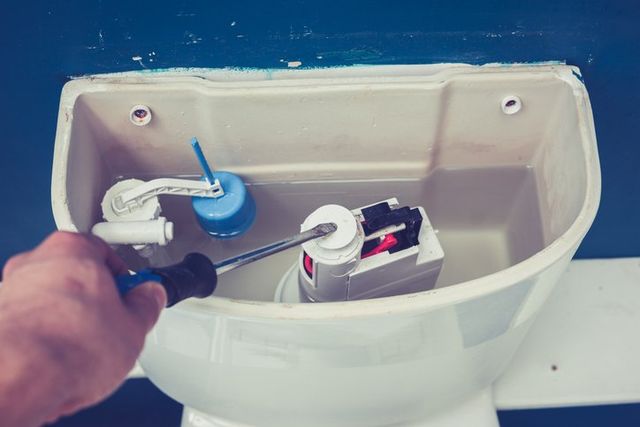Handling the Usual Hot Water Heater Emergency Challenges
Handling the Usual Hot Water Heater Emergency Challenges
Blog Article
We've come across this great article on Common Hot Water Heater Problems below on the net and decided it made perfect sense to write about it with you on this page.

A hot water heater is among one of the most important fundamental devices that can be found in a home. With water heaters, you do not require to go through the tension of home heating water by hand every single time there is a need to take a bath, do the laundry, or the dishes. However, there is constantly a possibility that your water heater would break down just like a lot of mechanical devices.
It is essential to keep in mind any type of little malfunction and also tackle it swiftly before points get out of hand. Most times, your hot water heater starts to malfunction when there is an accumulation of debris as a result of constant usage. As a safety measure, routine flushing of your water heater is suggested to avoid debris buildup and prevent functional failing.
Typical hot water heater emergency situations and also exactly how to take care of them
Insufficient warm water
Dealing with an inadequate supply of warm water can be irritating. It may be that the water heater can not support the hot water demand for your apartment or condo. To deal with this trouble, you might attempt to adjust your heating unit's temperature level dial and wait on a few minutes. You can ask for the assistance of a specialist plumber if the issue continues. Conversely, you might upgrade your hot water heater to one with a larger capacity.
Rising and fall water temperature.
Your water heating unit could begin generating water of different temperature levels usually ice scalding or chilly warm. There could be a need to change either the heating or the thermostat device of your water heating system.
Dripping hot water heater tank.
In this situation, you need to turn off your water heater, permit it to cool down, and carefully look for the resource of the problem. At times, all you require to do is to tighten a couple of screws or pipeline connections in situations of small leaks. If this does not work and also the leak lingers, you may need to use the solutions of a service technician for a suitable substitute.
Stained or stinky water
When this takes place, you need to understand if the concern is from the tank or the water resource. If there is no funny scent when you run chilly water, then you are specific that it is your water heater that is faulty. The smelly water can be caused by rust or the buildup of bacteria or debris in the water heating system tank.
Final thought
Some home owners overlook little caution and also minor faults in their water heater system. This just brings about more damage as well as a feasible full break down of your device. You must deal with your hot water heater faults as soon as they come up to avoid even more expenses and also unnecessary emergency difficulties.
With water heaters, you do not require to go with the stress of home heating water by hand every time there is a need to take a bathroom, do the washing, or the meals. It may be that the water heater can not support the warm water need for your house. Your water heater could start producing water of various temperatures usually ice cold or hot warm. If there is no amusing scent when you run chilly water, after that you are specific that it is your water heating unit that is damaged. The stinky water can be caused by corrosion or the buildup of germs or debris in the water heating unit container.
Common Water Heater Issues and What You Should Do
What Type of Water Heater Do You Have?
Before we begin it’s first important that you identify the type of water heater you have on your property. There are two main types of water heaters out there: conventional and high efficiency.
Both of these types of products typically use either gas or electricity to heat power. There are also solar water heaters that use a thermal collector on the roof or yard to heat the water.
While these models are not as common, they can cut heating costs in half. In this article, we will focus on conventional and high efficiency.
How Do My Electric and Gas Water Heater Work?
Though they look similar, electric and gas water heaters work very differently. It’s important to know their basic function because often problems can be specific to the heating source.
In the electric model, a thermostat on the side of the machine detects the temperature of the water in the tank. When the temperature needs to rise electricity flows to a heating element suspended in the water.
Gas models also use a thermostat device — typically with a mercury sensor at the tip and an additional sensor called a thermocouple. The thermocouple detects whether the pilot light is on and controls the flow of gas.
When the thermostat drops below the appropriate level gas is released which becomes ignited by the pilot light. The flame heats the bottom of the water tank which causes hot water to rise and cold water to drop.
This natural circulation continues until the water reaches the desired temperature. Then, the thermostat triggers the gas control valve to shut off the flow of gas.
What Are the Most Common Issues and How Do You Fix Them?
https://happyhiller.com/blog/common-water-heater-issues-and-what-you-should-do/

As a devoted reader on The Importance of Water Heater Maintenance, I was thinking sharing that excerpt was worth the trouble. Liked our blog posting? Please share it. Let another person check it out. Thank you so much for taking the time to read it.
Hot water issues? Connect now. Report this page